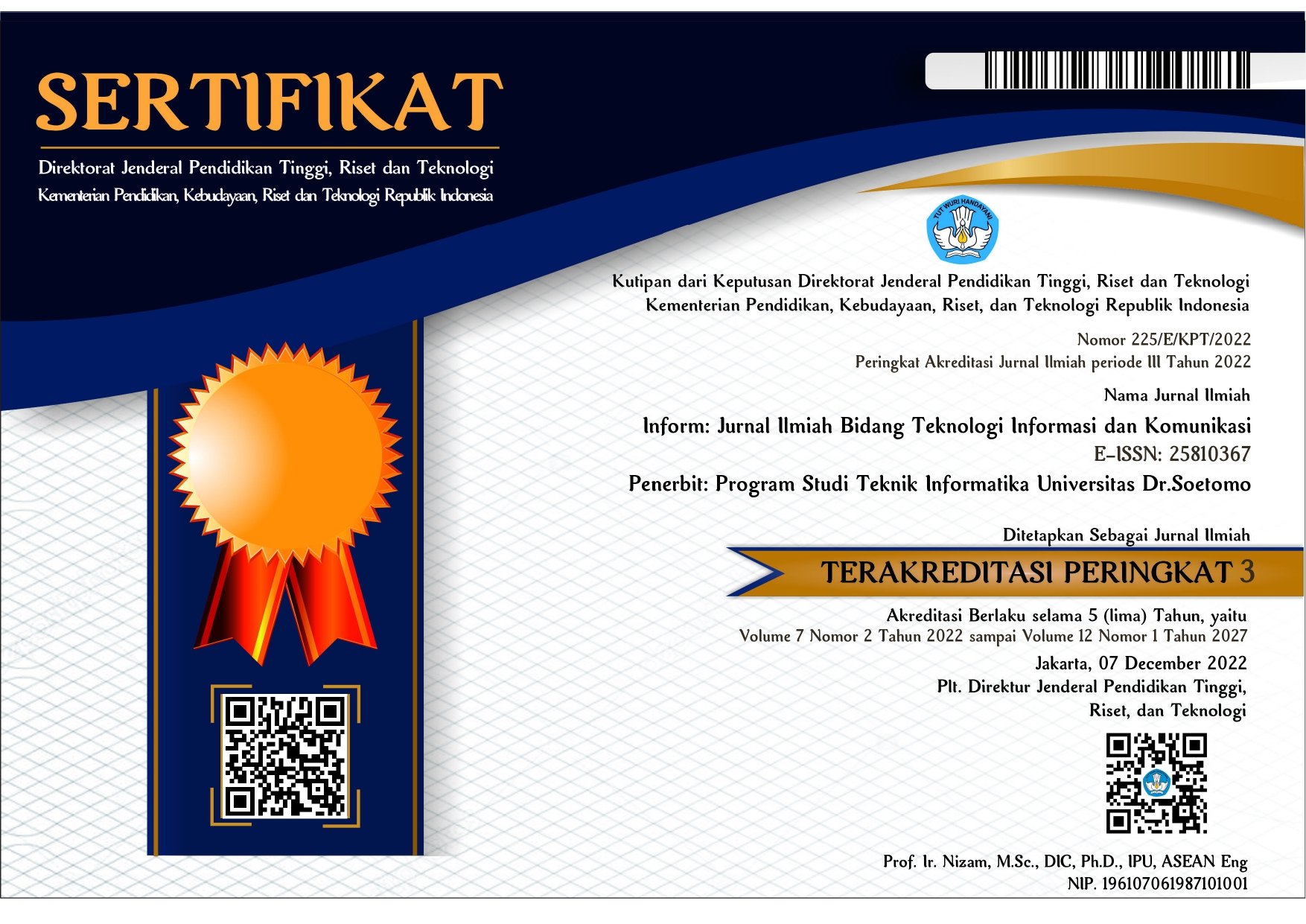Business Models Canvas of MOOCs: an Investigation of Sustainable Practices for MOOC Universities
 Abstract views: 438
,
Abstract views: 438
,
 PDF downloads: 434
PDF downloads: 434
Abstract
Massive Open Online Course (MOOC) is defined as an online open-access course available to an unlimited number of students from any location. These online lectures provide convenience and timeliness for students, enabling them to study from anywhere and anytime. With the demand for online learning, universities require a business design model for the MOOC application that will be used as online learning with the hope that it can be carried out continuously and in the long term to support the existence of online learning. The online learning process in Indonesian education in the era of the Industrial Revolution 4.0 and the implementation of the Merdeka Belajar Kampus Merdeka (MBKM). This research aims to create a business model for the implementation of the MOOC application as an open online lecture. The stages of this research method include a literature review study related to business models by the world's leading MOOC platforms, including Coursera, EdX, Udacity, and Udemy. Then analyzed and made a business model using the nine-block canvas method and implemented the MOOC application in the context of the MBKM Curriculum.
References
Kaplan, A.M. and Haenlein, M. (2016) Higher Education and the Digital Revolution: About MOOC, SPOCs, Social Media, and the Cookie Monster. Business Horizons, 59, 441-450.
https://doi.org/10.1016/j.bushor.2016.03.008
Walji, S., Deacon, A., Small, J., & Czerniewicz, L. (2016). Learning through engagement: MOOCs as an emergent form of provision. Distance Education, 37(2), 208-223.
F. P. Oganda, N. Lutfiani, Q. Aini, U. Rahardja and A. Faturahman, "Blockchain Education Smart Courses of Massive Online Open Course Using Business Model Canvas," 2020 2nd International Conference on Cybernetics and Intelligent System (ICORIS), 2020, pp. 1-6, doi: 10.1109/ICORIS50180.2020.9320789.
Lambert, S. and Carter, A. (2013). The Virtual University: Impact on Australian Accounting and Business Education. Institute of Chartered Accountants Australia. 77-85.
Shah D. (2020) By the Numbers: MOOCs in 2020. Class Central November 2020. Retrieved from https://www.class-central.com/report/moocs-stats-2020/
Attis, D., Koproske, C., & Miller, C. (2012). Understanding the MOOC trend: The adoption and impact of massive open online courses. Washington, DC: The Education Advisory Board. Retrieved from http://www.eab.com
EvoLLLution NewsWire (2013). Finally, a business model for MOOCs. EvoLLLution. Retrieved from http://www.evolllution.com
Young, J. R. (2013, February 21). Revenue-sharing models between edX and university partners. The Chronicle of Higher Education. Retrieved from http://www.chronicle.com
Shah D. (2015) How does Coursera make Money?. Edsurge October 15. Retrieved from https://www.edsurge.com/news/2014-10-15-how-does-coursera-make-money
Kolowich S. (2013). How EdX plans to earn and share revenues from ist free online course. The Chronicle of Higher Education. 21 february. Retrieved from http://chronicle.com/article/How-EdX-Plans-to-Earn-and/137433/
Roos D. (2014). How edX Works. 17 October. HowStuffWorks.com. Retrieved from http://people.howstuffworks.com/edx.htm
Chafkin M. (2013). Udacity’s Sebastian Thrun, Godfather of free online education changes course. Fastcompany, 14 November. Retrieved from http://www.fastcompany.com/3021473/udacitysebastian-thrun-uphill climb
Udemy (2013) Udemy. Retrieved from htt^://www.udemy.com
McGuire R. (2014) Is the Udemy Marketplace model still valuable to instructors?. Skilldup. 5 December. Retrieved from http://www.skilledup.com/insights/is-the-udemy-marketplace-modelstill-valuable-to-instructors
Upward, A. (2013). Towards an Ontology and Canvas for Strongly Sustainable Business Models: A Systemic Design Science Exploration, Masters of Environmental Studies / Graduate Diploma in Business and Environment, York University, Faculty of Environmental Studies and Schulich School of Business.
Al-Debei, M. et al. “Defining the Business Model in the New World of Digital Business.†AMCIS (2008).
Yoram M. Kalman (2014) A race to the bottom: MOOCs and higher education business models, Open Learning: The Journal of Open, Distance and e-Learning, 29:1, 5-14, DOI: 10.1080/02680513.2014.922410
Field, A. (2013) Discovering Statistics Using IBM SPSS Statistics: And Sex and Drugs and Rock “N†Roll, 4th Edition, Sage, Los Angeles, London, New Delhi.
Osterwalder, A dan Pigneur, Y. (2010). Business Model Generation : A Handbook for Visionaries, Game Changers dan Challangers. New Jersey : John Wiley & Sons, Inc
Osterwalder, A. (2004). The business model ontology a proposition in a design science approach.
Copyright (c) 2021 Erri Wahyu Puspitarini, Anastasia Maukar, Fitri Marisa, Kurniawan Wahyu Haryanto, Teguh Pradana

This work is licensed under a Creative Commons Attribution-ShareAlike 4.0 International License.
Authors who publish with Inform: Jurnal Ilmiah Bidang Teknologi Informasi dan Komunikasi agree to the following terms:
-
Authors retain copyright and grant the journal right of first publication with the work simultaneously licensed under a Creative Commons Attribution License (CC BY-SA 4.0) that allows others to share the work with an acknowledgment of the work's authorship and initial publication in this journal.
-
Authors are able to enter into separate, additional contractual arrangements for the non-exclusive distribution of the journal's published version of the work (e.g., post it to an institutional repository or publish it in a book), with an acknowledgment of its initial publication in this journal.
-
Authors are permitted and encouraged to post their work online (e.g., in institutional repositories or on their website) prior to and during the submission process, as it can lead to productive exchanges, as well as earlier and greater citation of published work.













